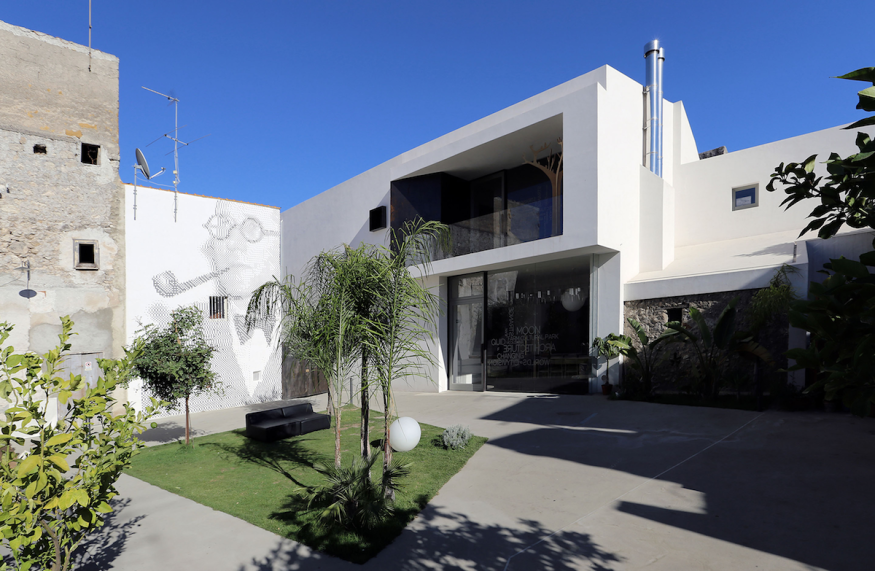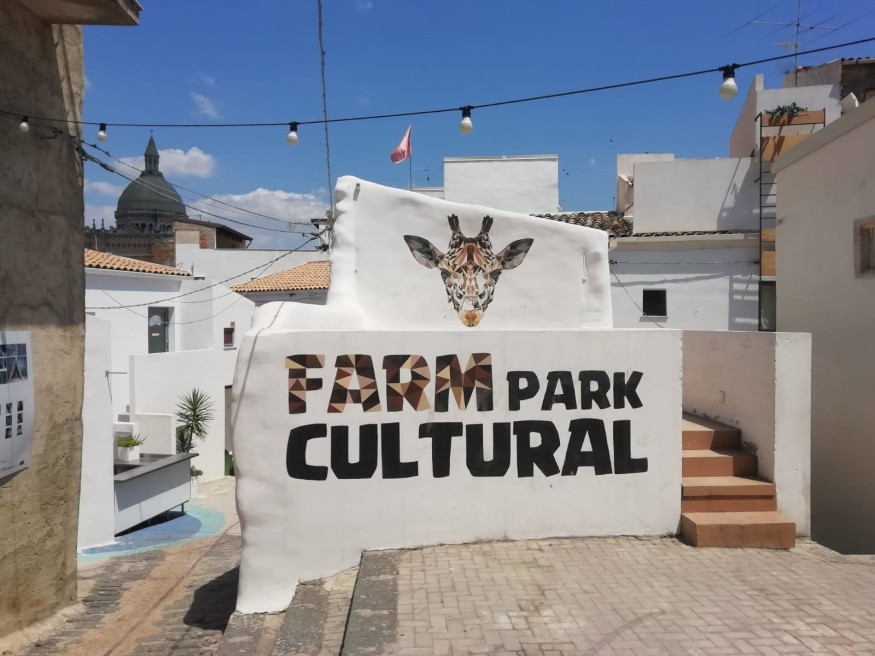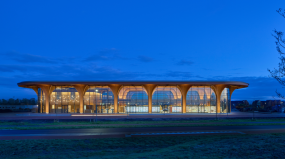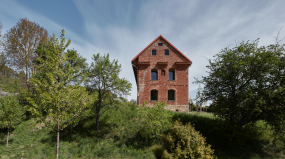
Farm Cultural Park in Favara as a lab for change and regeneration: projects and policies, environment and education
The SI - South Italy Architecture Festival, an important event on the world of architecture, ended a few days ago in Favara and Isplora was there as media partner. A Festival born with the idea of reactivating the role of Architecture as social catalyst through the dialogue between experts and the local community.
South Italy Architecture Festival
Two weeks of events, exhibitions, lectures, installations, shows and reflections on and within the themes of the architectural debate. Immersed in the scenario and perspective of Farm Cultural Park, a place for meeting and dialogue, a regeneration project that goes beyond the urban scale.
Starting from the exhibition "The Art of Creative City Making", curated by Marco Rainò, on Charles Landry’s research work, where questions on the city emerge: how can we create the conditions for people and organizations to think, plan and act in an imaginative way to solve problems and create opportunities in a world of dramatic change?
The answers lie within Landry's research, within the concept of "creative city" he coined, where creativity becomes the link between citizens, residents and the context they live in, a physical infrastructure that coexists with an immaterial one, where human dynamics acquire value within space, a space of relationships and imagination.
Analysis, debates and leaps into the future, such as the work "Share the World" by artist Seb Toussaint or the stories of "urban rebellion" of City Rebels curated by the founder of Farm Cultural Park, Andrea Bartoli. Projects and proposals such as those of the architects of “People First” that show a possible dialogue between the city and its inhabitants, through public space, connecting needs and participation in a different way.
City and community, environment and education
Sharing, public space, creativity as fundamental issues connected to the other two central themes of the festival and, more generally, of Farm: education and environment.
Environment, taking care of it, as a goal that can no longer be postponed. Nature enters the city, space, becoming a vector of transformation and the answer to contemporary challenges linked to climate change, urban decay, poverty of social relations, the cultural crisis. A possible answer to Anthropocene.
A broad reasoning on the relationship between man and nature, an operational program - through a proposal for parkification - and highlighting experimental tools, themes and projects, such as "Human Forest": the forestation of architecture, specifically of Palazzo Micicchè in Favara, redefining borders and meanings, actions and effects.
Education, as a fundamental move to intervene on the political agenda and the territory, identifying devices and methods, preparing the ground for the future, not only of architecture.
On the one hand SOU, the School of Architecture for Children of Farm Cultural Park which for years has been committed to building a community, an open way of thinking referred to the disciplines of the project, stimulating reflection and aimed at the improvement of society, investing in future generations, focusing on training to raise the people of tomorrow: “free, ethical and generous”.
 QUID, Architect Lillo Giglia
QUID, Architect Lillo GigliaOn the other hand, Prime Minister, the School of Politics for Young Women that seeks to increase awareness in young Italian women through a journey, an experience of empowerment to strengthen transversal knowledge and skills within society. Politics as the "administration of public affairs", the ability to trace a path for society and the citizens of the future, politics as the construction of an answer.
Change and regeneration, Farm and Favara
Narrating the festival, the Farm Cultural Park project and the Favara experience, provided Isplora’s editorial staff with the opportunity to immerse themselves in a reality that goes beyond a mere creative proposal for urban regeneration.
Farm represents, as recalled by urban planner and teacher Maurizio Carta, a "particle accelerator that provides a glimpse of something that is happening, a little further into the future, covering problems and solutions, conflicts and complexities".

Farm is a "compensation device", what "should be normality", "a toolbox" that "before regenerating places thinks about regenerating people", the community, as stated by its two founders: Florinda Saieva and Andrea Bartoli.
Just listening to the parents of this project, which has just turned ten, some fundamental terms emerge: an "organic" identification between project and creativity, actions and cities, Farm and Favara.
 Florinda Sajeva e Andrea bartoli, Founders Farm Cultural Park
Florinda Sajeva e Andrea bartoli, Founders Farm Cultural Park
"A trigger that multiplies forces and possibilities", as also stated by architect Mario Cucinella, a vision that could make us look at inland areas and the relationship between city and man, nature and history, in a different way.
Farm’s story is long and bumpy and doesn’t include only successes and important goals, it’s a story made of change and regeneration that collides with problems and disappointments, rules and constraints. Many micro-stories hide behind this story, from those of the founders to those of the promoters and supporters of the project, from the inhabitants to the visitors, who make up a broader narration, which has gone beyond the boundaries of its city, to reach other territories and other communities.
So, Favara as a utopia? A possible model? They will answer no. Farm contains some aspects of a "protocol" and many of a teaching: "it can be done", albeit in a different way, according to the territory and culture, the community and its inhabitants, the vocation and possibilities of each urban reality.
Farm, from the seven courtyards of Favara to cities in the world, to talk together about the future and plan changes.





